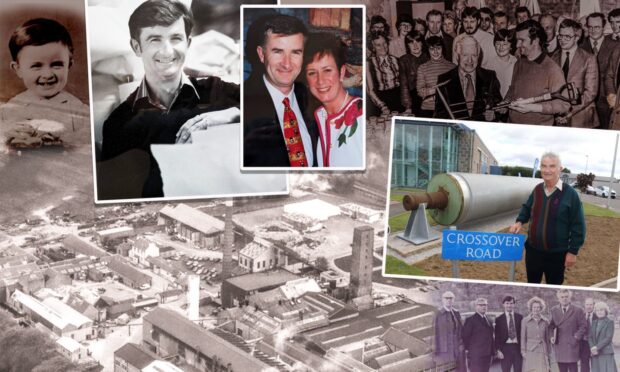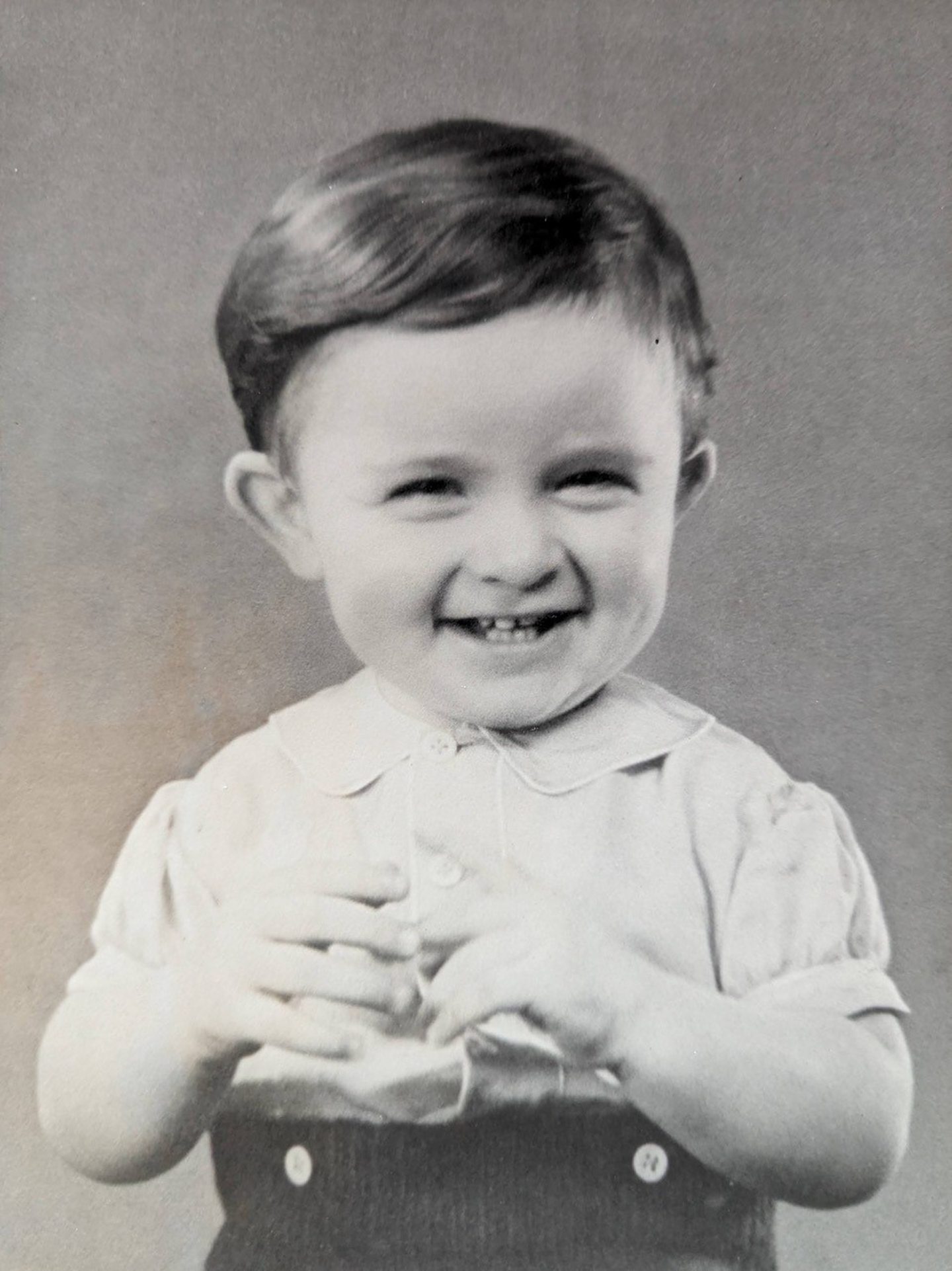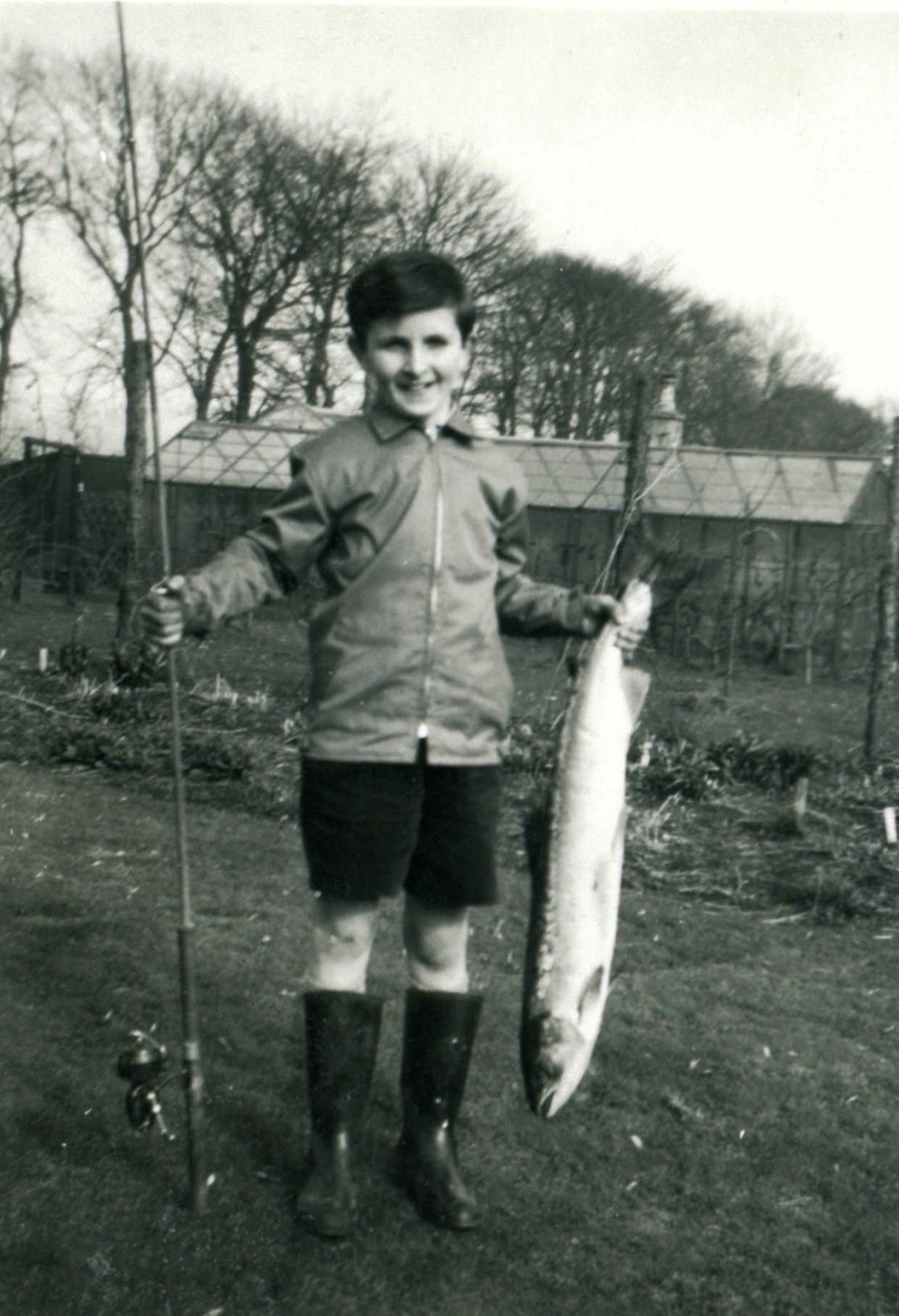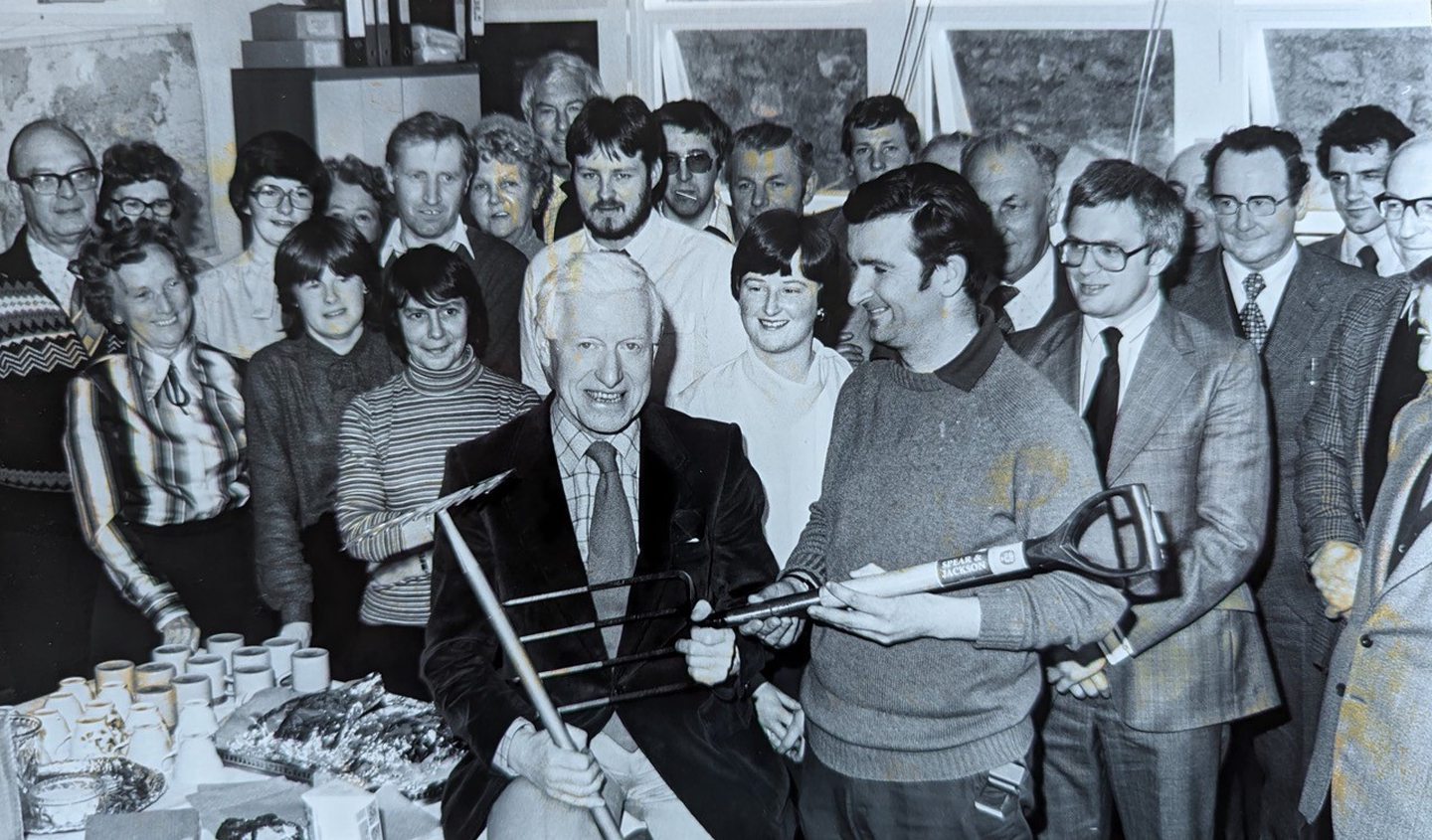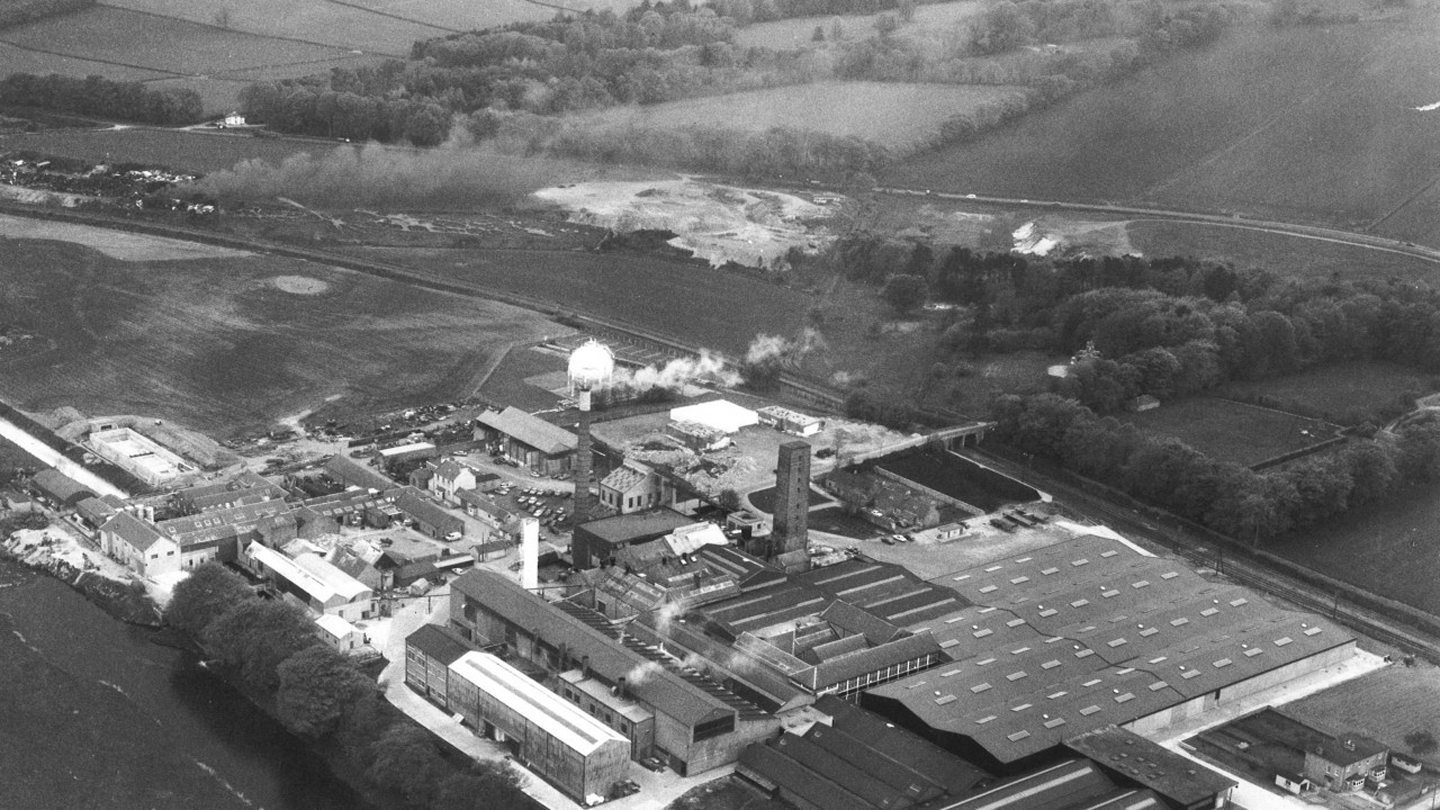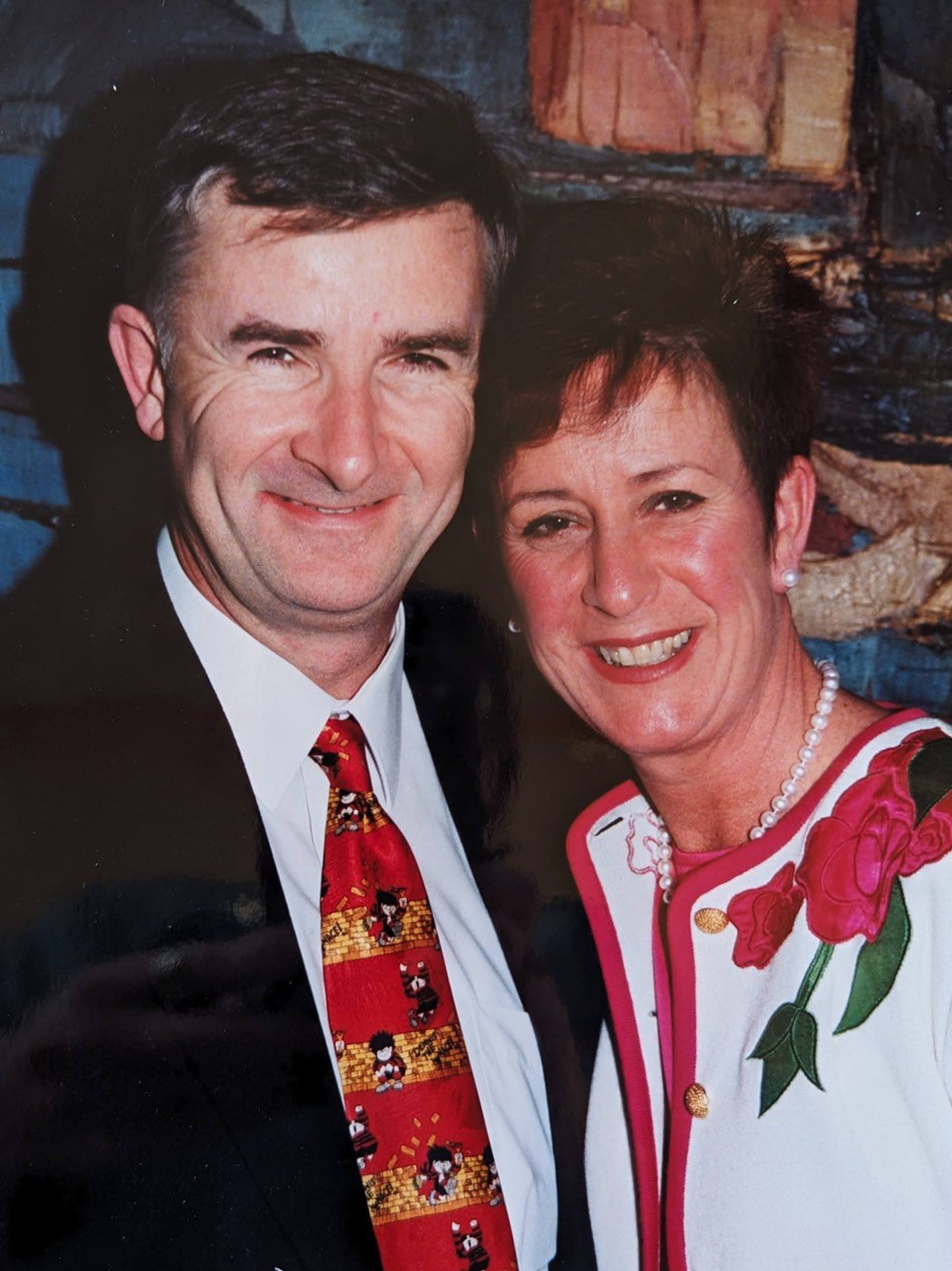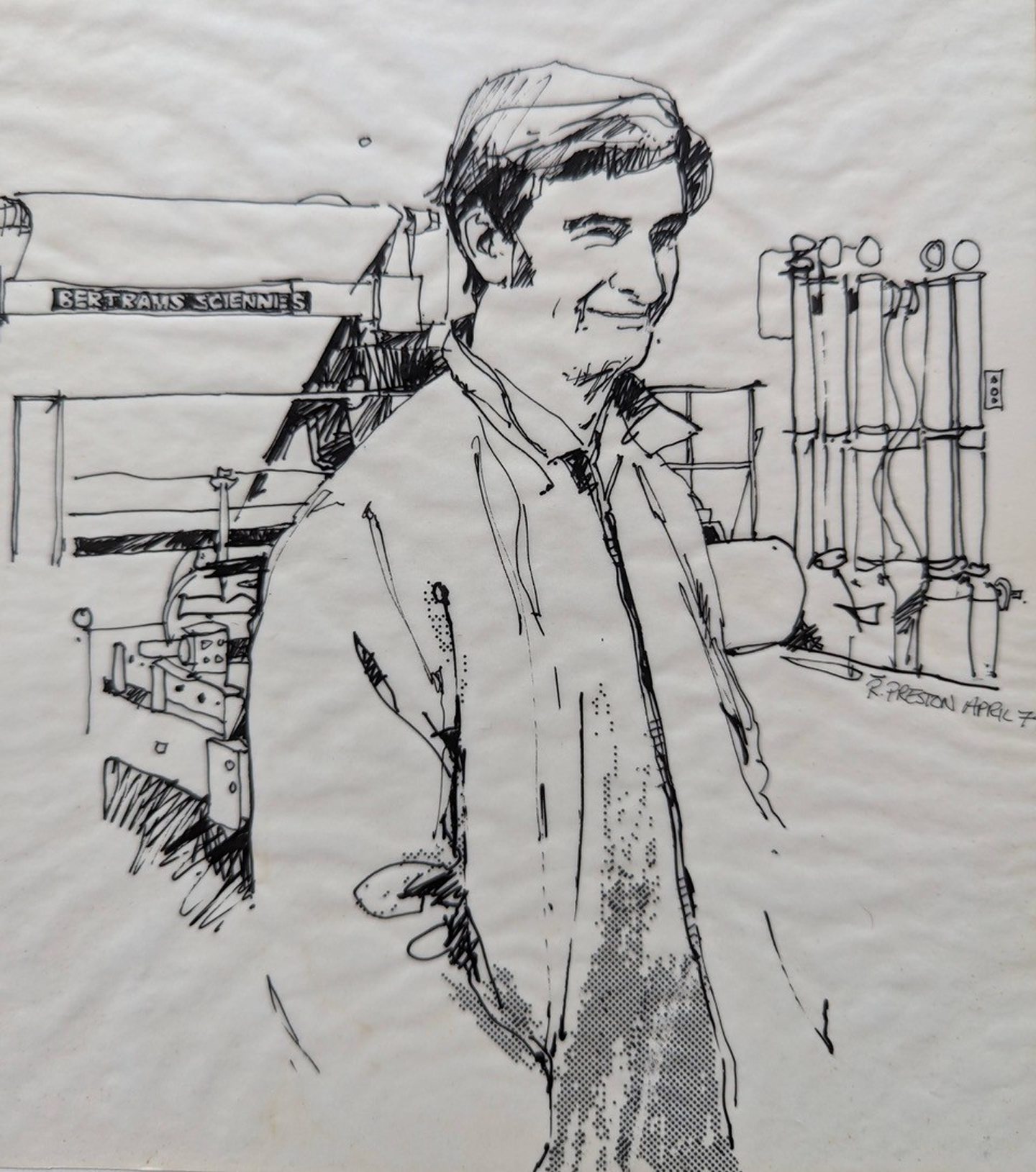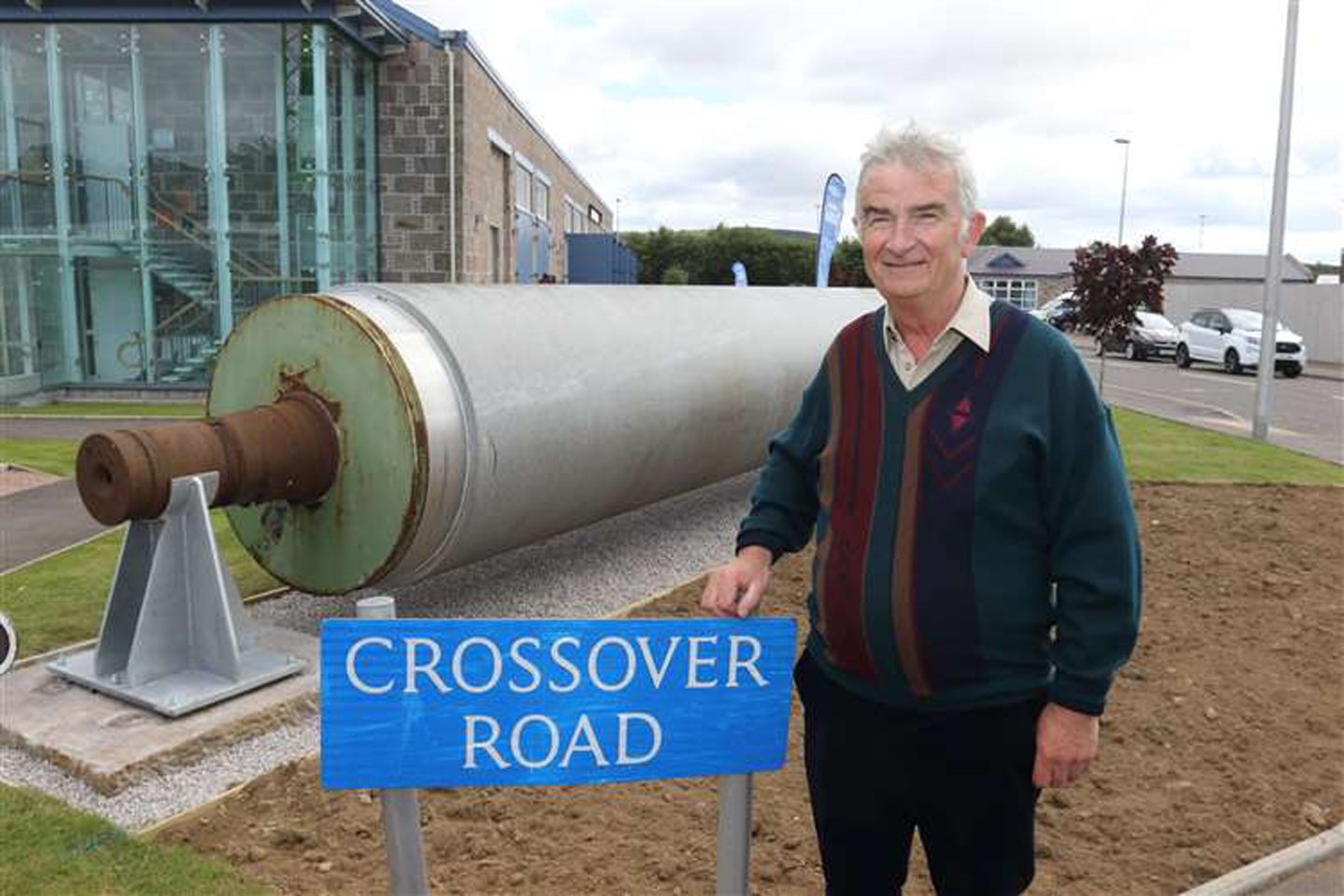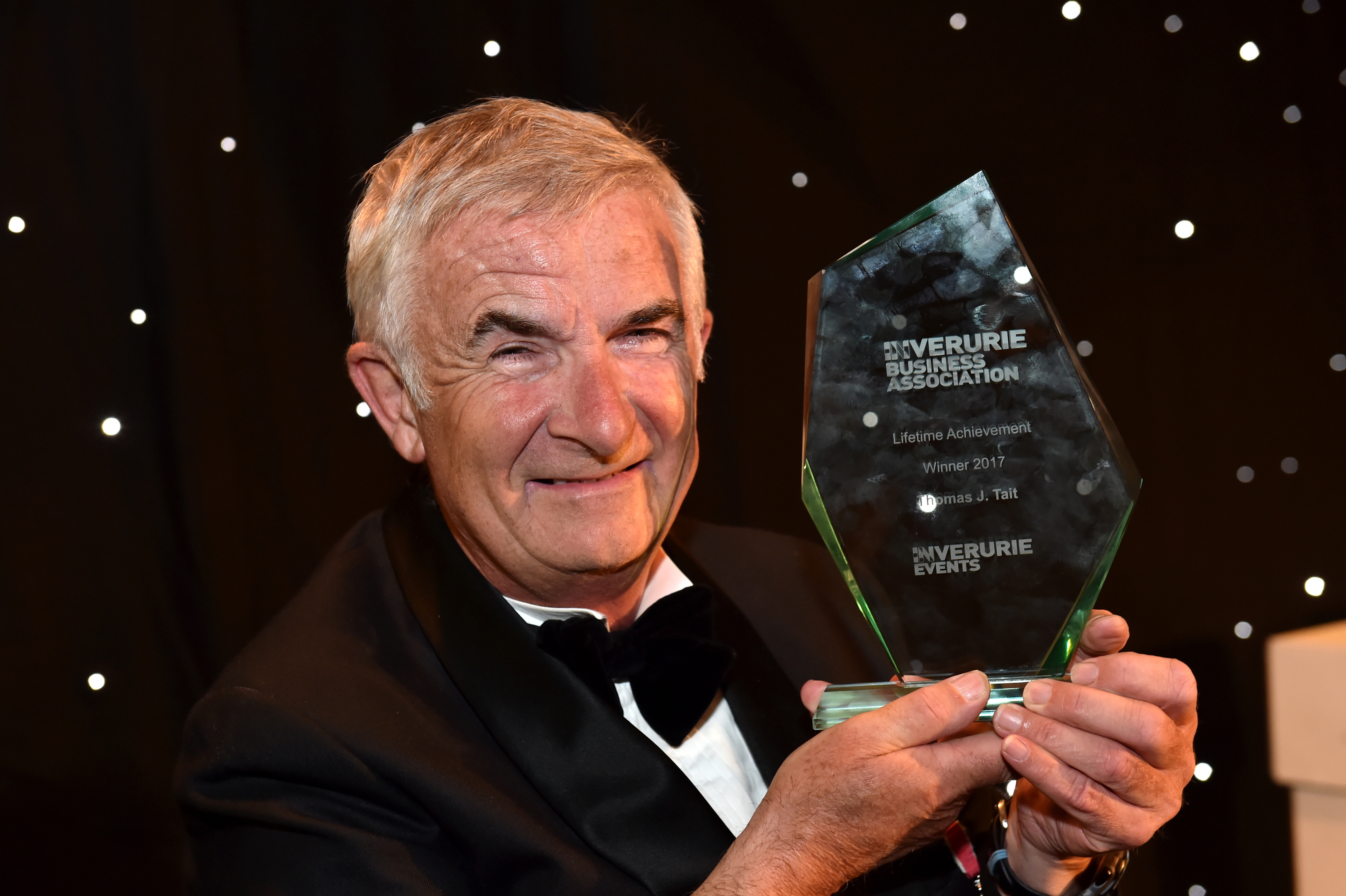He was forced to take over the running of Inverurie paper mill at the age of just 21, following the tragic death of his father in a traffic accident.
And, for a while, Thomas Tait had weightier things to concern himself with than the fly fishing on the Don which had occupied myriad joyous hours once he had finished his studies at Port Elphinstone primary school and Inverurie Academy.
Yet, while the youngster was a free spirit in his formative years, he soon proved himself an innovative and resourceful business figure.
After all, he had been visiting the mill since he was a child and made friends with hundreds of employees who worked at one of the region’s biggest factories of its kind.
The country loon had a sharp brain
He purchased a formidable granite roll as part of a major £22.5m investment in the 1980s. This was the biggest paper machine in the UK at the time, an achievement of which he was very proud. At the height of its production, this ground-breaking device produced enough paper on a 24-hour basis to stretch from Inverurie to beyond Paris.
By that stage, Mr Tait had already received a visit from prime minister-in-waiting, Margaret Thatcher and been praised for his enterprise by north-east politicians.
He had been given an OBE by the Queen; and had met and fallen head over heels for his wife, Sheila, whom he married in 1982 at the start of a more than 4o-year love affair.
He died at the very start of this year, aged 75, but Sheila has ensured that his memory lives on – and she took us on a tour around the life and times of a man who was always more than the simple “country loon” which he often described himself.
Learning at an early age
Growing up in Aberdeenshire, he would rear gold and silver pheasants under one of his mother Jean’s “clocking hens” and became involved in his father’s other enterprises, which all helped develop his interest in business in adult life.
As he said during an interview in 2020: “I remember being taken into the workplace, dressed in my Sunday best, when I was just five years old and being allowed to press a button which seemed very exciting.
“I couldn’t understand at that stage why everybody was interested in what I was doing, but as the years passed, I learned all about the different aspects of life at the mill.”
‘We just had to get on with it’
“I was only 21 when my father [William] was killed and that was obviously a sad time in our family. Dad was walking to work and was on a bridge when the accident happened.
“We just had to get on with it, because there was so much expansion going on at the mill. In the 1970s, we were producing around 10,000 tons of paper every year.
“But the demand kept increasing and that figure rose to 250,000 tons in the 1990s, which led to us employing more people and we sent paper to all parts of the globe.“
Mr Tait was chairman and managing director of Thomas Tait and Sons Ltd, which was launched by his five times great grandfather in 1852.
He took over at the helm after the untimely passing of his father and recalled: “Papermaking was an important part of the working heritage of the Garioch area, and the mill played a key role in that development as a significant employer.
“My family had the foresight in the 1850s to realise that, as education became more widespread, that there was more going to be more need for the printed word. And that, of course, couldn’t be done without the production of a lot more paper.”
The mill employed hundreds of people
By 1995, the mill employed 510 people, operated for 24 hours a day, 365 days a year with five crews and former employees testify to how Mr Tait valued all his staff.
Almost every morning and weekends, he would walk round the premises, chatting to everyone – and he knew the name of every employee in the company. Indeed, he would even go in, every January 1, to wish the staff who were on duty a Happy New Year.
On one of his frequent trips to the London, he ended up at a business dinner where he met Sheila. It was a whirlwind relationship – and after she travelled up to Aberdeen for a weekend together, they were engaged and married three months later in May 1982.
“We also travelled the world together, looking at the latest machinery to improve the mill’s output, meeting up with customers and clients throughout the UK and as far afield as Fiji, Australia, America and across Europe.”
Yet, despite the expansion of the mill in the 1980s and 1990s, tastes were changing with the advent of computers at home and in offices sharply reducing the need for paper.
The new century brought bad news
In 2002, after 32 years at the helm, Mr Tait hung up his hat and left matters to the emerging generation to tackle any challenges.
But Inverurie and other mills were facing the same problems, allied to increased competition from European rivals, especially in the old Soviet Union.
The economics didn’t stack up and reality hit home when the British economy started to flatline in the aftermath of the global banking crisis.
The last roll of paper was made at the Inverurie plant on March 26 in 2009 at 12.52pm. And then, despite efforts to seek alternatives, the factory closed its doors.
Mr Tait said: “It was horrendous for me and my family when it happened and we knew what the consequences would be for the staff who had done a terrific job for us.
“I remember travelling to Edinburgh on a train and receiving a phone call about the closure and it was hard not to shed tears, given the history of the mill.
‘A very tough time’
“I also recall being asked to take a look at the machines in the mill later on, but I refused. There were no people there any more and my main concern was for them.
“The oil industry was still in good shape at that time and we had skilled workers whose talents could be utilised elsewhere – but there were others who didn’t do so well.
“It was a very tough time.”
Mr Tait was never going to slip quietly into retirement. On the contrary, he was the first person to receive the Inverurie Business Achievement Award.
On an overseas trip to the USA, he saw a product called Orientated Strand Board and took several samples home to show a friend who was in charge of Scottish Enterprise.
He subsequently joined a small group of financiers and Highland Products was born.
Supporting the Garioch Heritage Centre
He and Sheila were keen supporters of the Garioch Heritage centre and were instrumental in the creation of an impressive exhibition at the site, detailing the centuries-old story of the Tait family’s connection with the region.
Mr Tait had a keen interest in forestry and derived so much enjoyment from seeing the trees growing and being harvested, then the land being replanted in a natural cycle.
In the end, he recognised that, as his compatriot Lewis Grassic Gibbon wrote in his famous novel Sunset Song: “Only the land endures”.
But Mr Tait’s passion was fishing and after going to Alaska for a 40th birthday present he was hooked! As Sheila related: “He went every year and loved meeting up with his buddies, and making new friends whom he kept in contact with.”
Yet Sheila was never far from his thoughts and he from her’s.
And when she was asked what her husband’s happiest memories would have been, she replied without hesitation: “Our life together. But not forgetting fishing.”
